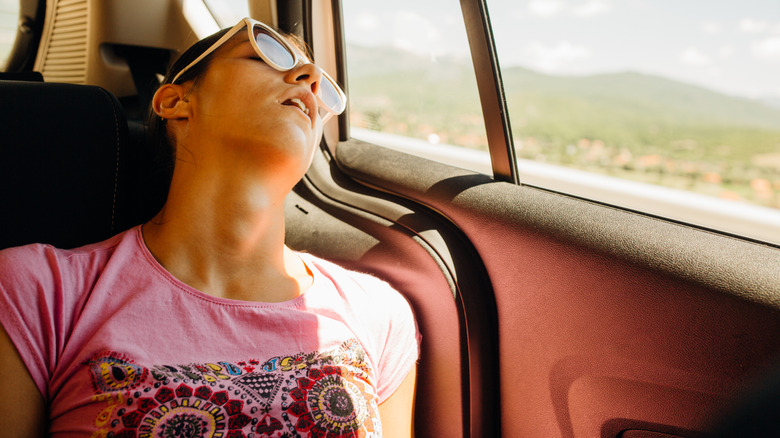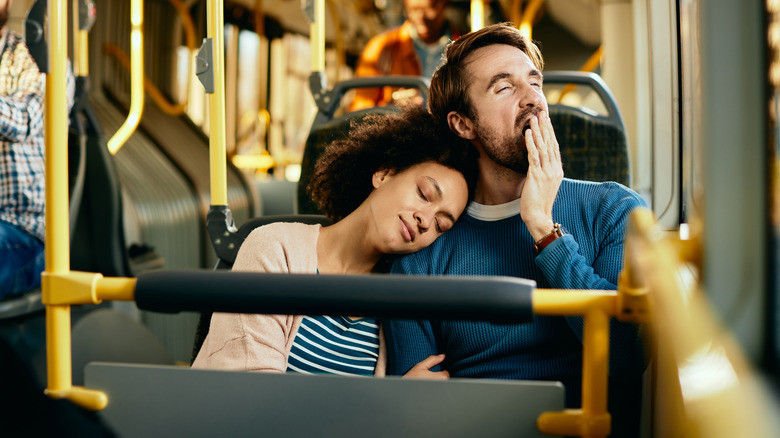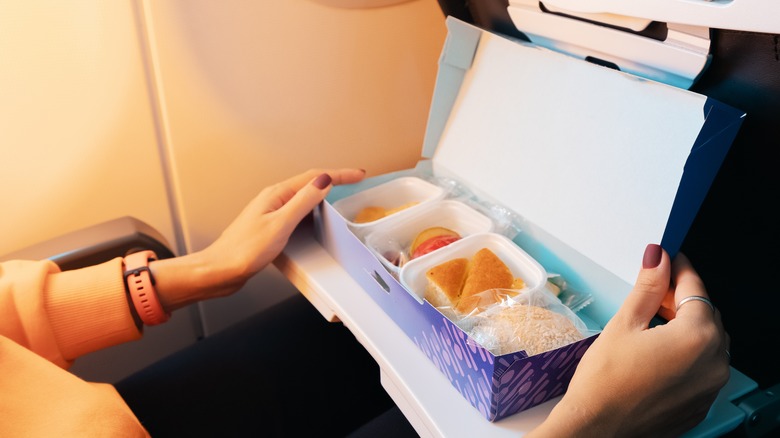Can Traveling Make You Tired?
An action-packed vacation can feel exhausting when you finally return home after some much-needed time away. Whether you stuck to a busy itinerary or felt drained after several days spent baking in the sun on a sandy beach, it's not uncommon to feel like you need a vacation from your vacation after the fact — but what about the act of traveling itself? Why is it that we sometimes feel more exhausted after riding in a plane, train, or automobile, before we even arrive at our destination?
Different from jet lag, travel fatigue is a bout of temporary exhaustion that occurs after utilizing any mode of transportation, including cars, trains, boats, or planes, according to travel health expert Sarah Peterson (via FLIGHTFŪD). While jet lag is exclusive to airplane travel and is often a result of time zone changes that impact one's quality of sleep, travel fatigue can impact the body in a number of different ways well beyond sleep.
Symptoms of travel fatigue extend past exhaustion as well. According to FLIGHTFŪD, when traveling, our body is exposed to new types of bacteria and viruses that we haven't previously built immunity to, thereby increasing the chances for illness. In addition to reduced immunity, additional symptoms include feelings of burnout and increases in food and alcohol consumption.
How different modes of transportation affect the body
Most of us are probably familiar with the kind of fatigue associated with flight. When flying, we're breathing in cabin air that is 15% drier than the air we're accustomed to, leading to exhaustion from dehydration (via FLIGHTFŪD). Not only that, but the hours spent sitting reduces blood flow throughout the body. As the body works overtime to keep our blood pumping, blood is routed away from digestive organs to other areas of the body, causing bloating, digestive discomfort, and fatigue.
When it comes to car travel, we experience more movement while in transit due to potholes, twists and turns, sudden stops, and car vibrations (via Science ABC). During all this movement, the brain's natural impulse is to keep you upright and maintain your posture. To do so, the brain keeps your muscles actively engaged throughout hours of car travel, leaving you exhausted by the time you eventually pull over.
Travel fatigue not only affects passengers but can impact transport operators as well. According to the American Boating Association, fatigue poses the biggest threat to safety during rough weather conditions while on the water. Crew members may experience decreases in concentration, coordination, and performance due to poor sleep, continuous sun exposure, and eye strain from squinting through partially obscured windshields.
How to keep travel fatigue at bay
To reduce bouts of travel fatigue, travel blogger Jessica Festa suggests implementing relaxation techniques during transit, such as listening to a calming meditation app or music playlist while in flight or in the car (via USA Today). If transport will take multiple days, Festa suggests getting adequate sleep between each leg of travel. A spritz of lavender spray on your pillow, a hot bath, or the use of an eye mask can all help boost the quality of sleep.
In addition, keeping your body sufficiently fueled while traveling can also help ward off fatigue. Munching on snacks, such as carrots, nuts, and fruit, may serve you better than coffee or fast food, which can lead to feelings of sluggishness or a sugar crash later in the day (via FLIGHTFŪD). Lastly, when possible, consider alternate modes of transportation that keep the body energized and moving. Try biking or walking rather than taking an Uber to get around when you finally arrive at your vacation destination (via USA Today).



